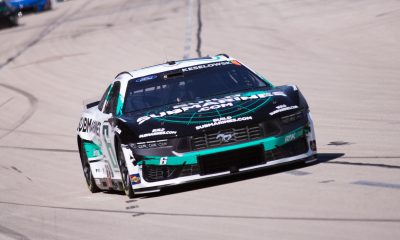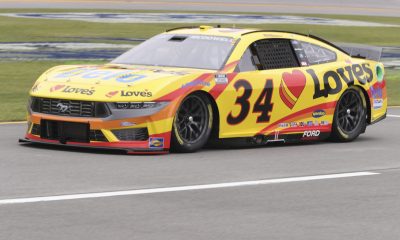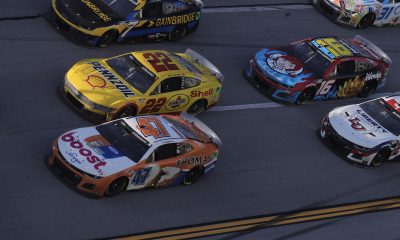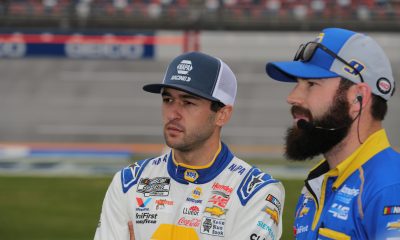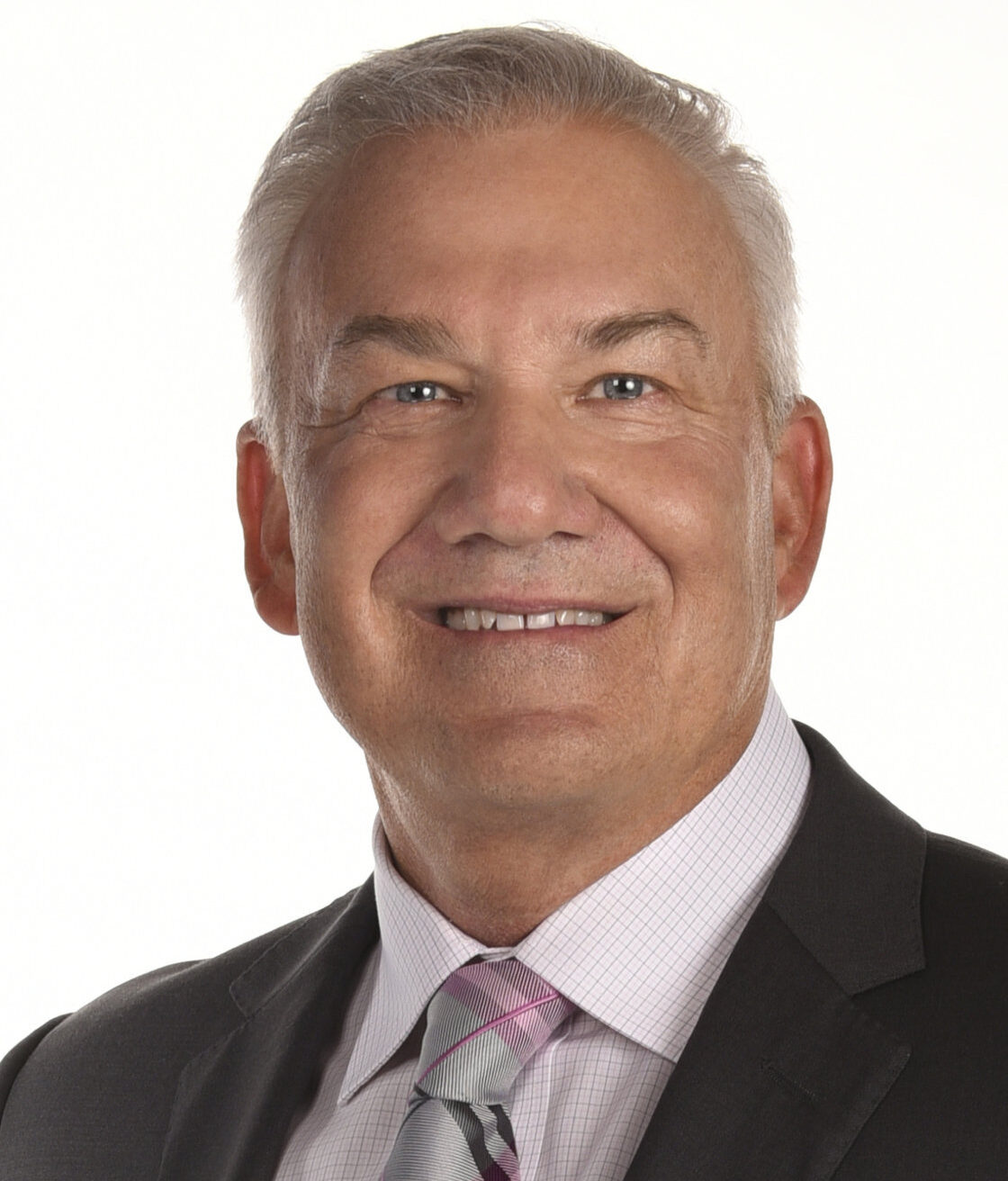
Chiefly, Dale Jarrett remains a popular NASCAR legend today. (Photo: Grant Halverson | NBC Sports)
By all means, most younger fans recall Dale Jarrett driving the No. 88 Quality Care or UPS Ford. Indeed, Jarrett often ran at the front of the field at the superspeedways like Michigan.
Moreover, Dale Jarrett represents, personally, the last of old school NASCAR Cup Series drivers. Before the paradigm shift by Jeff Gordon in 1993, drivers cut their teeth driving for fledgling teams.
Of course, over time, a driver like Jarrett earned a quality opportunity in Cup. However, Jarrett’s destiny and path into a competitive Cup ride proved quite interesting as he’ll share.
Generally, Dale Jarrett showcased his talents as an aggressive but patient competitor. Sure, Jarrett traded paint with the best of Cup especially from 1991 to 2005.
However, Dale Jarrett established his legacy on his own as a second generation stock car racer. Chiefly, Jarrett worked hard and excelled with his opportunities in his NASCAR Hall of Fame career.
Presently, Jarrett offers his insights for NASCAR on NBC as an analyst. In particular, Jarrett, like his legendary father Ned, shares thoughtful and intelligent thoughts each weekend.
Ahead of the 30th anniversary of his maiden Cup win at Michigan, I caught up with Dale Jarrett. Personally and professionally, Jarrett initiated my passion for racing with his first Cup victory televised on ESPN. In essence, Jarrett’s riveting duel with Davey Allison kickstarted a lifelong love of motorsports which continues today.
Without further ado, let’s get in “In the Hot Seat with Dale Jarrett” here on The Podium Finish!
Rob Tiongson : Dale, while most fans recall your years with the No. 88 Robert Yates Racing team, most may not really recall your tenure with the Wood Brothers Racing team, particularly in 1991. I viewed this as your seminal season.
So first of all, how was it like to drive for this team and know it was your ride after some tough beginnings?
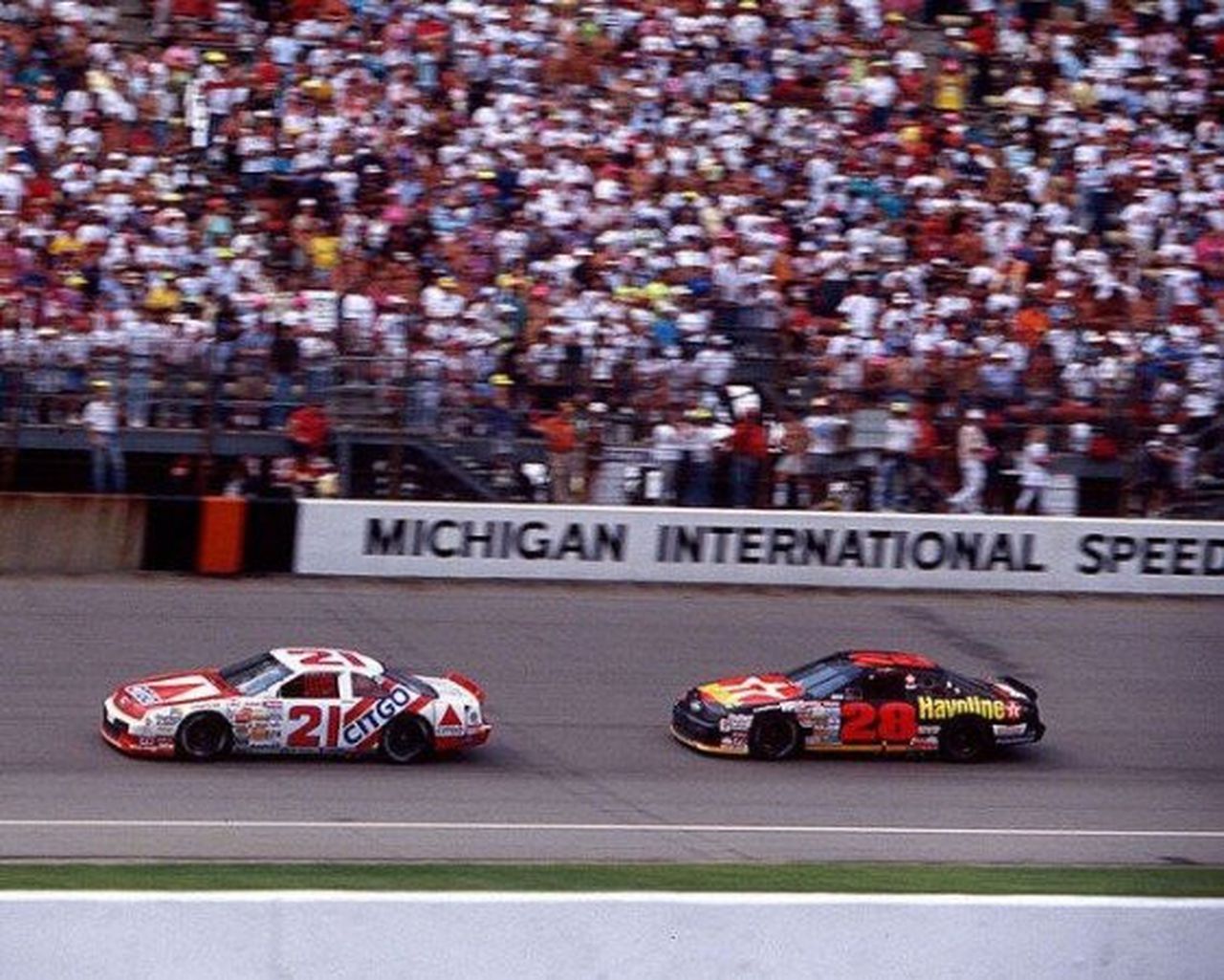
Significantly, Dale Jarrett, then at age 34, bested Davey Allison at Michigan in 1991. (Photo: ISC Archives)
Dale Jarrett : Yeah, as I look back on my career, we all have defining moments, whether that’s a year and a certain event, whatever it may be. But my tenure with the Wood Brothers, which started in the 1990 season, I actually was out of the Cup series. I ran my own Busch Grand National team at the time. And early in the season, Neil Bonnett, who drove for the Wood Brothers, was injured, had got a concussion literally right at the Darlington spring race.
The Wood Brothers were a family that I knew my entire life and been around them. When Eddie Wood called me about replacing Neil Bonnett, the next race was Bristol in 1990. So I didn’t know if that was going to be one race.
Might be two. Might be five. Didn’t know. As it turned out, I drove the rest of 1990, went into ’91 as the driver of the Citgo Ford for the Wood Brothers.
It was a dream come true. Little did I know that this would be the turning point of my racing career. I owe a lot to a lot of people.
But without that opportunity from the Wood Brothers to drive their car and eventually then, in 1991, get my first win in the Cup series driving for the Wood Brothers, that changed my life, my professional life, forever. And without that, I don’t know if the rest of it would have happened.
It was that opportunity that I got from the Wood Brothers, and in particular that full season in 1991 of being able to drive for them was the turning point and the thing that changed my career on a very upward path after that.
Tiongson : The thing that really inspires me is that you kept working at it. Despite coming from a very famous racing family, it seemed like you really wanted to earn this on your own. And you wanted to make this opportunity happen.
When considering how you found your racing home, a lot of things headed in the right direction before Michigan. So ahead of that race week, did you feel like you and your team were ready to win despite the ups and downs happening during that year?
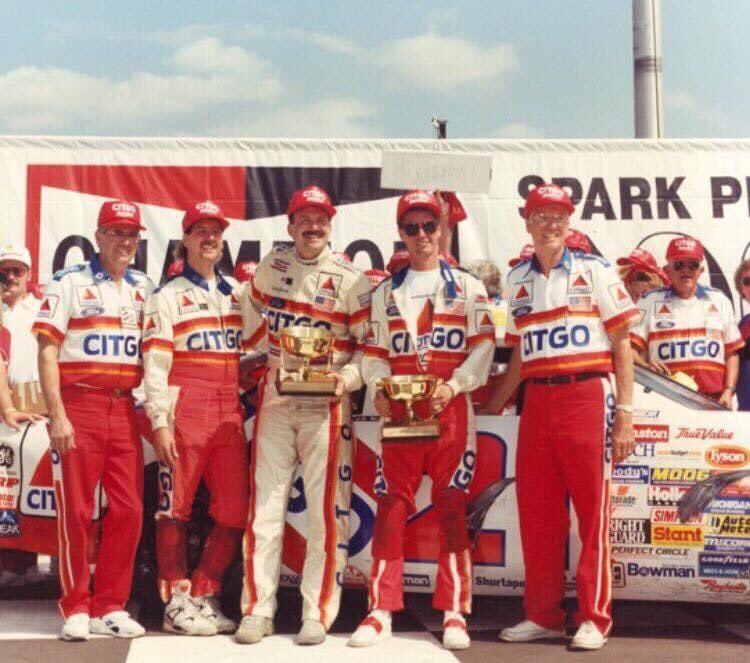
In the long run, Dale Jarrett made a name for himself starting with the 1991 win at Michigan. (Photo: Wood Brothers Racing)
Jarrett : As a matter of fact, that’s an interesting question. I don’t know that we felt like we were ready to win. But what we prepared for was something that changed for us.
We worked extremely hard on the cars, making them handle better, making them drive better. But we knew that Robert Yates designed a new cylinder head for Ford. And they were using that.
We were down on horsepower quite a bit. Most of the rest of the Fords were, too.
There were a couple that started getting sets of these cylinder heads. But we were a little bit down the line, even though the Wood Brothers have always been Ford Motor Company. But that day in Michigan in August of 1991 was the first time that we had those cylinder heads. And what I knew it allowed me to compete at a higher level on a more regular basis.
And so then, from that point then, you hoped that you find yourself in a position to capitalize on that. I did not have any idea that it might be that very first race that we used these new cylinder heads.
As things had it, those cylinder heads that were designed and built by Robert Yates, I battled his driver at the time, Davey Allison, for the win at the end.
Davey dominated the race. But I ran well all day, and Eddie Wood made a call on our last pit stop. As I came down pit road, it was the best my car was all day long. And he said, “Let’s take a chance and just put gas in and leave these tires on and get track position right up front.”
As he did that, then I ended up with the lead on the exit of pit road. And so I was in charge of the restart there late in the race.
To say everything that transpired from that point forward… I really didn’t think I could hold Davey off. But somehow, some way, we were able to do just enough. I mean, I think we won by like eight inches.
The last two laps, Davey and I ran side by side. But for it to come down to that car whose owner built these cylinder heads, and to win against Davey Allison, someone that I grew up around the sport with and admired as a driver and a person, it couldn’t have been a more fitting ending and way to get my first win in the Cup series.
I did things my way for a long time. People wanted to make comparisons, and always did, about my career versus my dad. But that wasn’t what it was about. Just making my mark and being the best driver that I could be.
I love competing. And this gave me that opportunity. And to do that and get my first win with the Wood Brothers as a number of other drivers have means the world to me.
Tiongson : That’s incredible to know that, because I never knew that about the No. 21 car at the time. I knew you were a talented driver and knew that the No. 21 team could contend. But it’s pretty neat knowing that background, for sure.
When I watch that race, even to this day, it sends chills up my spine, especially those last 10-15 laps with you and Davey playing cat-and-mouse. And then having that side-by-side finish.
Background story, very quickly, that was the very first race I ever watched in my entire life. It was the happiest accident of my life because we were channel surfing. And the NASCAR race came up on the TV. The first thing I asked my dad, I said leave it on this channel.
So he put it on, we watched you win the race. And then a week later, we went to the toy store. My mom bought your diecast car for me and I was so excited. I took it out of the box. But I accidentally scratched my dad’s new Oldsmobile Cutlass Sierra. At the time, my dad was upset. It’s a funny story now because it got us closer.
So I “blame” you not only for me starting my love of NASCAR. But 30 something years later, my dad and I can have a good laugh about that.
Jarrett : Wow, how about that! Yeah. So many interesting things have happened.
Tiongson : Certainly. In my house, I can safely say you’ve been one of the big drivers we talk about. You and Jeff Gordon were my favorites as a kid. So we always made friendly race picks. My mom and dad would say, “Dale’s going to win! He’s going to beat Jeff!” And I’m like, “Oh, just you wait!”
Going back to your first win, your dad called that race with ESPN with Benny Parsons and Bob Jenkins, Dr. Jerry Punch and John Kernan. And I thought that was so neat that your dad got to be there. How emotional and how special was it to share that moment with him, knowing that you won in front of him?
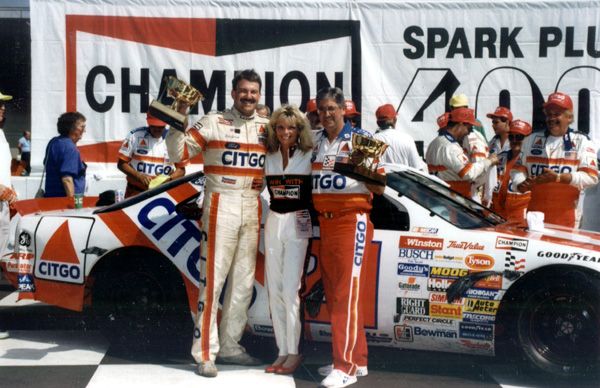
Notably, Dale Jarrett mentioned a pivotal upgrade that aided in his first Cup win.
Jarrett : Yeah. So many people forget that he was calling that race. Because of what happened two years later in the ’93 Daytona 500, whenever he called that race. And of course just winning the Daytona 500 and I’m battling Dale Earnhardt, everybody remembers that and wants to talk about that.
But they forget that he was actually in the booth calling the race that I won for my first Cup win in Michigan that day. The thrill of doing that with my dad there, those are things that… we can’t repay our parents in a lot of ways for all the stuff that they’ve done for us. But this was something that I felt like he could be proud that I had followed in his footsteps.
Not necessarily for that reason, but I did it because I love to compete. And it was something I wanted to do. And so it was a huge moment to do that.
Even though it wasn’t one where, like the Daytona 500 in ’93, where they just kind of let him talk and call the last lap, I think he was a little bit in shock.
He said he couldn’t believe that I was still side by side with Davey. Because I almost spun out coming out of Turn 2. But it was a huge thrill for us to have that family moment. And something that we’ll always have as a father and a son.
Tiongson : Oh, for sure. I think the funniest moment I can recall is when they replayed the finish, they teased your dad quipping, “Did your think your son was going to lose the race?”
One of the cool things about the ’91 season that I recall, races aired on TV more frequently. I grew up in Boston, but I didn’t have cable all the time. When I finally did in September of ’91, I could watch you and your competitors on TBS, ABC, ESPN and then newcomer TNN. So how huge was it for you to see NASCAR grow in popularity with the cast of characters from that time period?
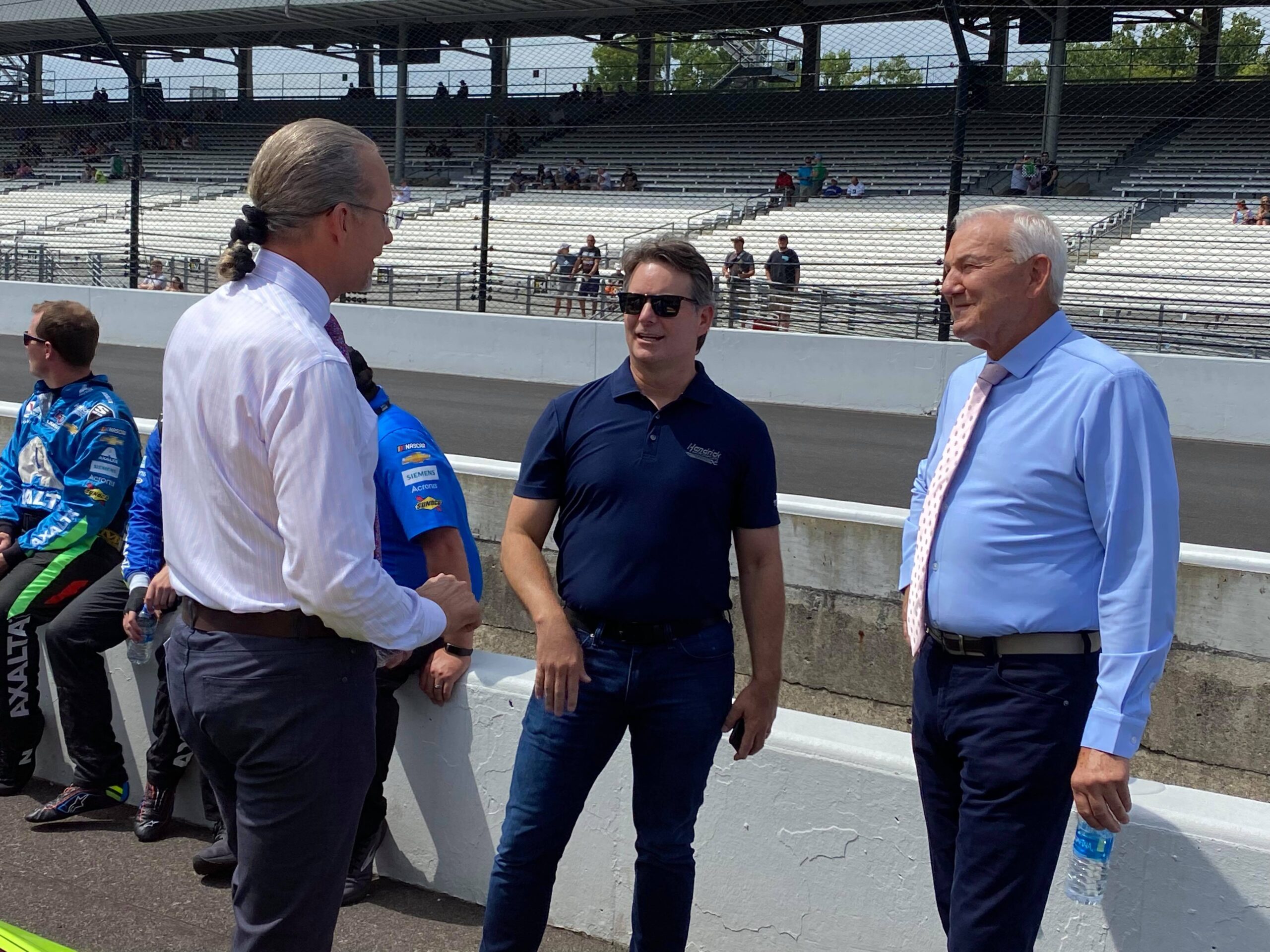
Nowadays, Dale Jarrett continues his friendships with Jeff Gordon and Kyle Petty as an NBC Sports analyst. (Photo: Stephen Conley | The Podium Finish)
Jarrett : Yeah. There were so many storylines as you left the ‘80s and into the early ‘90s, and then all through the ‘90s. Just incredible to be a part of the sport at a time that I feel like, and still feel like to this day.
As much as I love the sport today and the things that go on, that time that I was able to spend there with the people that were still there – Richard Petty. When I started, Richard Petty was still there and running and involved. This is somebody that I grew up as a kid watching, staying at the same motels as my dad whenever they were racing together.
And then you had obviously Dale Earnhardt and Cale Yarborough and Darrell Waltrip, and Rusty Wallace was into his prime at that time. Just so many talented drivers.
Then you had young drivers like Ernie Irvan and Davey Allison, Kyle Petty. It was just incredible the names that were there and the popularity of the sport. And it was like every year, it just continued to grow. We’d see more fans at the track.
As you mentioned, with all the different TV coverage that we were starting to get, there were just becoming more and more race fans out there. And it was just an incredible time to be a part of the sport.
I know that a lot of people feel like they came along at the best time. But there’s no doubt in my mind that I came along at the best time of the sport. And I was able to really enjoy that.
Tiongson : Oh, for sure. And then not just the cast of characters on the racetrack, the people who called the races. I mentioned your dad already, and of course ESPN’s folks. But you had Ken Squire, who is my broadcasting idol. You had Buddy Baker, who was so animated, whether it’s verbally or you watch him on camera.
You bring up some of the drivers, but I’ve got to ask. Who were some of your close on-track friends from 1991? And do you still keep in touch with them to this day?
Jarrett : Yeah, I would say that two of my closest friends during that time were Kyle Petty and Michael Waltrip. Kyle was someone that I grew up around the sport with. And as life would have it, here we are, both of us working for NBC and working together on the pre-race and post-race show. So it’s just incredible.
I went on the last year and a half of my career to drive for Michael Waltrip, and Michael is still a good friend to this day. It was fun to help him start up his team and get things going there with Toyota.
Ernie Irvan is someone that I still stay in touch with and admired and went on to become a teammate with him at Robert Yates Racing in the ’96 and ’97 seasons. So those were people… Sterling Marlin was another one.
These were a lot of the guys that their dads too grew up around the sport or were in the sport. And so I try to stay in touch with as many of them as I can. But obviously Michael being around the track, and Kyle, working with him all the time, those are the ones that I stay in touch with the most.
Tiongson : Most people know you for the 1999 Cup championship. You’ve got the three Daytona 500 wins and two Brickyard 400 wins. But for you, what is the most proudest achievement you’ve had in NASCAR?
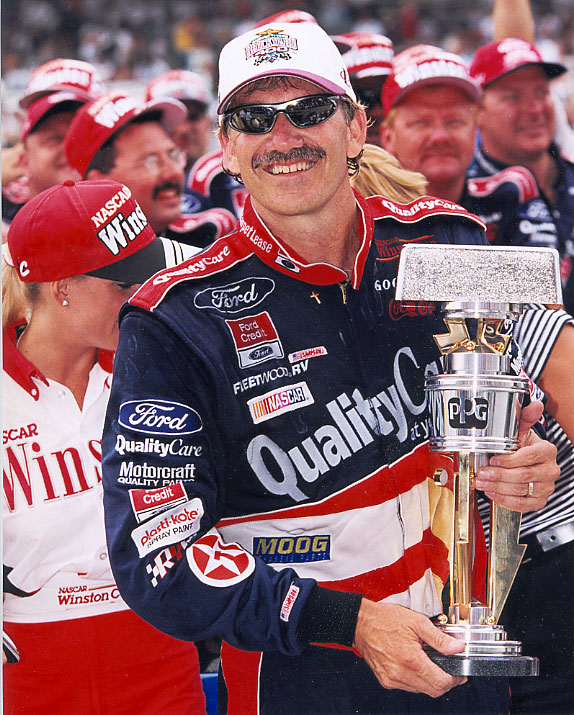
In particular, Dale Jarrett cherishes his 1999 championship season including his Brickyard 400 win. (Photo: Indianapolis Motor Speedway)
Jarrett : I would have to say that my proudest moment was winning the championship in 1999. I couple that with the fact that I feel like I made a difference in the sport. When I retired from driving – and obviously I’m still very involved in the sport – but from a competitor’s standpoint, you want to make a difference. And I feel like I did that.
There were things that I did that enhanced the popularity of the sport. It gave people Sundays and Saturday nights, gave them a reason to turn on their TV. I had incredible relationships with some of the biggest companies in the world, with Ford Motor Company, with Coca-Cola, and I could go down the list. But just the opportunity to represent those companies.
From a professional standpoint, the feeling of accomplishment of winning a championship and being the best for an entire year, there was nothing like that. I mean, the induction into the Hall of Fame, that’s a whole ‘nother level, a whole ‘nother thing. When that happened in 2014, that was beyond anything that I could ever fathom in my life.
But when I started racing, and even whenever I retired from driving, there wasn’t a Hall of Fame. So that wasn’t something that I was looking at. I just wanted to be the very best that I could be.
So my biggest accomplishment was winning that championship and giving Robert Yates his one and only championship as an owner.
Rob Tiongson : Landon Cassill, who was your NBC broadcasting colleague, offered this question. How was it like to make that transition from the No. 21 team to Joe Gibbs Racing after 1991 to ’92, especially given that JGR built itself as the juggernaut team today?
Jarrett : That is such a great question, because many people thought that maybe I wasn’t making a very sound decision there. They really questioned after I won the August race at Michigan. But the decision had already been made by that time that I was leaving. But there’s a lot that went into that decision.
For the outside and people looking in, including my dad a little bit of the time as I discussed this with him, couldn’t exactly figure out why I wanted to leave an organization that had brought me in. Basically given me a second chance at my career at the Wood Brothers. And why I’d want to leave them to go race for a football coach that had never been in the racing business in his life.
You have to know Joe Gibbs. He’s very persuasive. And the thing that I looked at and kept telling my dad and my wife Kelly was that Joe Gibbs was a winner. He’s a winner at life. And he understands people. He understands that you win with people. And that’s why I decided to take that chance.
He had a relationship with Rick Hendrick. I knew we’d be getting good cars. I looked at this. And I literally told my wife, I said, “I’m doing this. This is my chance, I believe, with the Hendrick Motorsports, with the Chevrolets,” at the time. I said, “This is my chance to win the Daytona 500.”
Did I know it was going to happen in the second year that we were together? No, I surely didn’t. But there was just something that told me that. And conversely, when I decided to leave Joe Gibbs Racing, a lot of people questioned me about that and going to Robert Yates for what at the time was only a one-year deal.
So I made some tough decisions along the way. But my faith got me through that. I prayed a lot about it. And those were the answers that I came away with. I felt like I was being led in the right direction with that. And that transition to a brand new team – gosh, there were so many things that came with that.
My brother-in-law Jimmy Makar was who I wanted as a crew chief. And he was brought on in that capacity. He ran the team and still there today as one of the… well, he’s in charge of all the racing operations at Joe Gibbs Racing. But there were challenges.
I mean, we literally… the Wood Brothers were a small organization. But we only had 18 people at Joe Gibbs Racing that first year. So there were a lot of challenges that we faced. We had no points to get in races on at the beginning. So the pressures of qualifying were amplified.
Even when we went to Indianapolis in 1994, because of where we were in the points, I had to qualify on time to make that race. So there were a lot of challenges. Joe Gibbs changed my life in a lot of ways. Certainly it was great, the opportunity that he gave me.
But personally, Joe Gibbs changed my life. And I’m forever grateful and thankful that I took that challenge and helped him build that race team that is one of the top, if not the top organization in the sport today.
Tiongson : What has been the most helpful or insightful advice that you got from your dad?
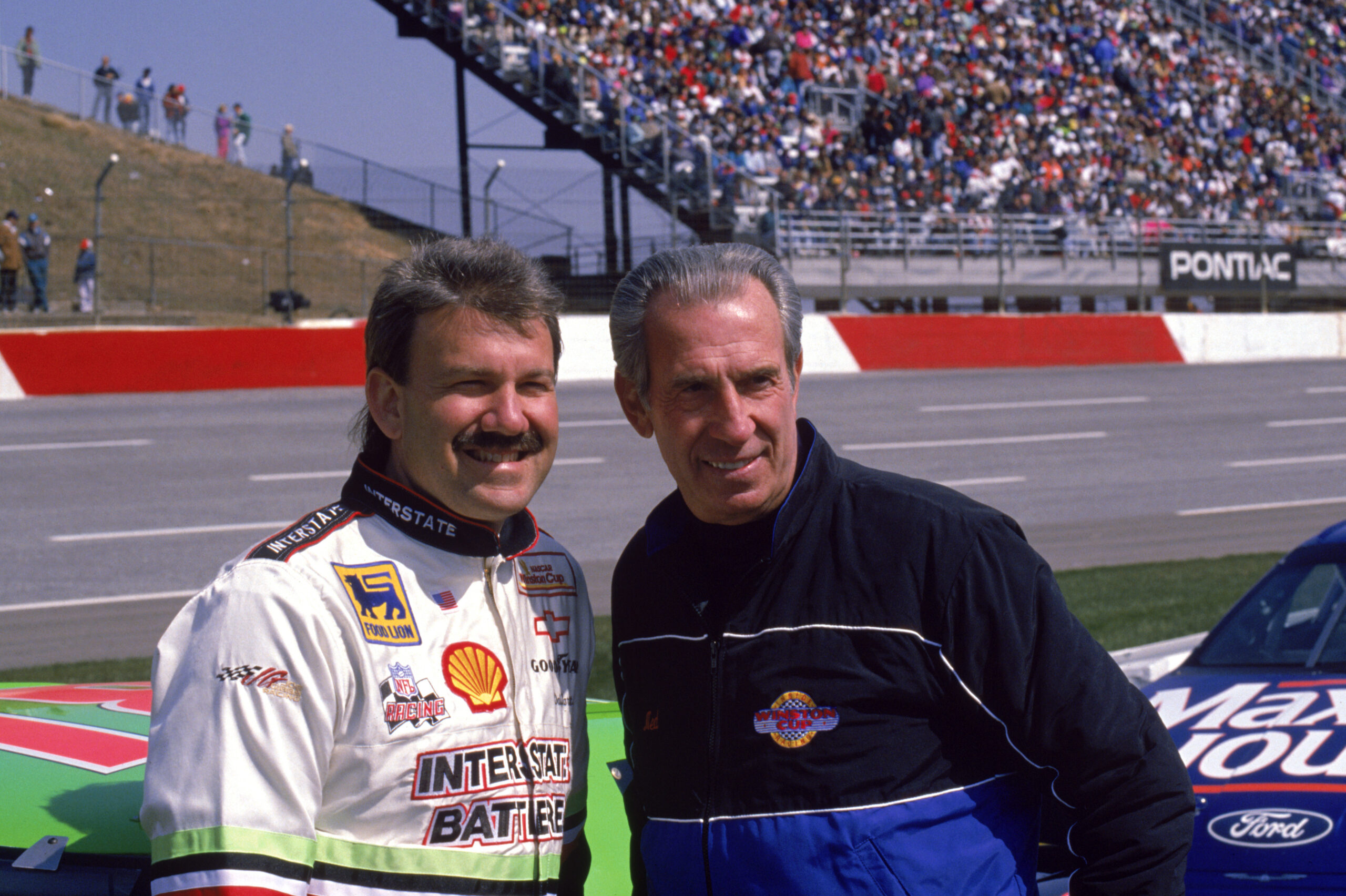
By and large, Dale Jarrett didn’t look far for his lifelong hero. (Photo: Bill Hall | Getty Images)
Jarrett : I say this the same to everyone that ever asks me. We certainly talked racing a lot. He taught me a lot about business along the way, and helping me as I started my racing career about working on the car. I had to get to know the cars and work on them. So there were a lot of things, advice about working on the car. I had to get to know the cars and work on them.
So there were a lot of things, advice that he gave me along the way. But the best advice that he gave me – and this came early on when I was competing in football, basketball, baseball, and golf in high school. But it was, “Treat others the way that you want to be treated.”
And I felt that that always applied no matter what I was doing: whether I was driving a racecar, whether I was on the golf course, whether you’re at a function of a multimillion dollar company, if you’re in the boardroom with them. That holds true no matter what you’re doing. And so that has been the best advice my dad ever gave me.
We all look for someone that we can look up to. I know that many have to look outside of their home to find those heroes that they look to. And I certainly had my sports heroes that I looked at and admired.
But my all-time hero was at my house every single day as I grew up. And that was my dad. That never changed, and hasn’t changed to this day. I’m 63 and he’s 87, and he’s still my hero.
Editor’s Notes
Special thanks to Dale Jarrett for taking the time for this latest “In the Hot Seat” interview series on The Podium Finish. Also, thanks to Dan Zacharias and Campbell Marketing & Communications for making this interview possible ahead of this year. You can keep track of Dale Jarrett on his Facebook and Twitter accounts and here on TPF!
Lastly, I dedicate this feature to my sister Tess as she celebrates her birthday today. Happy Birthday, Tess!
Rob Tiongson is a 30-something motorsports journalist who enjoys sports like baseball, basketball, football, soccer, track and field and hockey. A Boston native turned Austinite, racing was the first sport that caught his eyes. From interviews to retrospective articles, if it's about anything with an engine and four wheels, it'll be here on TPF, by him or by one of his talented columnists who have a passion for racing. Currently seeking a sports writing, public relations, or sports marketing career, particularly in motorsports. He enjoys editing and writing articles and features, as well as photography. Moreover, he enjoys time with his family and friends, traveling, cooking, working out and being a fun uncle or "funcle" to his nephew, niece and cat. Tiongson, a graduate of Southern New Hampshire University with a Bachelor of Arts in Communication, pursues his Master of Arts in Digital Journalism at St. Bonaventure University. Indeed, while Tiongson is proud to be from Massachusetts, he's an everywhere kind of man residing in Texas.

